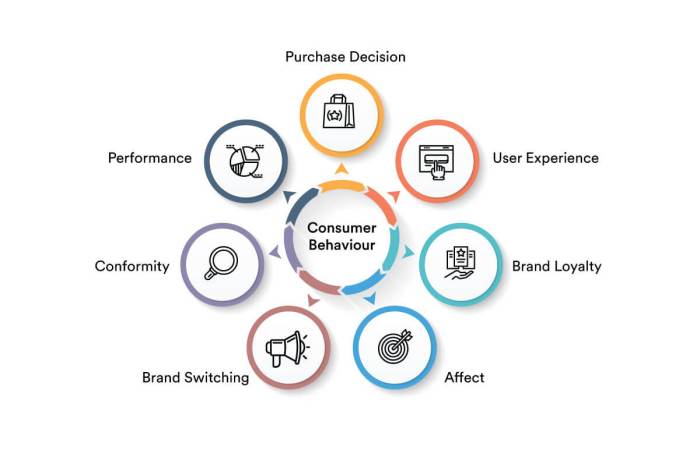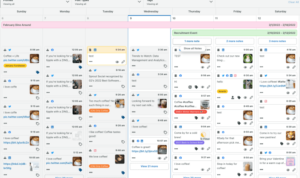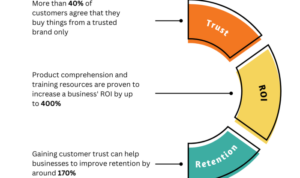Understanding Consumer Behavior is like deciphering the secret code to attracting customers and boosting sales. Dive into this fascinating world where psychology meets marketing for a wild ride through the minds of consumers.
From the reasons why we buy what we buy to the strategies that businesses use to influence our decisions, this topic is a goldmine of insights waiting to be explored.
Importance of Understanding Consumer Behavior

Understanding consumer behavior is essential for businesses to thrive in today’s competitive market. By gaining insights into why consumers make purchasing decisions, companies can tailor their marketing strategies and product offerings to meet the needs and preferences of their target audience.
Impact on Marketing Strategies, Understanding Consumer Behavior
Consumer behavior directly influences marketing strategies in various ways. For example, knowing the factors that drive consumer purchasing decisions helps businesses create more targeted advertising campaigns. By understanding consumer preferences and behaviors, companies can also optimize their pricing strategies and promotional tactics to attract and retain customers.
Role in Product Development
Consumer behavior plays a crucial role in product development. By analyzing consumer feedback and behavior patterns, businesses can identify areas for improvement and innovation. Understanding consumer preferences and trends allows companies to create products that resonate with their target market, leading to greater customer satisfaction and loyalty.
Factors Influencing Consumer Behavior
Understanding consumer behavior is crucial for businesses to tailor their marketing strategies effectively. Various factors play a significant role in influencing consumer behavior, including social, cultural, personal, and psychological factors.
Social Factors
Social factors encompass the influence of family, friends, social media, and other social groups on consumer decision-making. People often seek approval and validation from their social circles before making purchasing decisions. For example, a person may buy a certain brand of clothing because their friends or favorite influencers endorse it.
Cultural Factors
Cultural factors include the impact of culture, subculture, and social class on consumer behavior. Cultural norms, values, beliefs, and traditions shape individuals’ preferences and choices. For instance, certain cultures may prioritize practicality and functionality over luxury and status symbols when making purchase decisions.
Personal Factors
Personal factors encompass individual characteristics such as age, gender, lifestyle, and personality. These factors influence how consumers perceive products and brands. For example, a young, adventurous consumer may be more inclined to purchase trendy and innovative products compared to an older, more conservative consumer.
Psychological Factors
Psychological factors like perception, motivation, and attitudes also play a significant role in consumer behavior. Perception refers to how consumers interpret and make sense of information from the external environment. Motivation drives consumers to fulfill their needs and desires through purchasing products or services. Attitudes towards brands, products, or shopping experiences can greatly impact consumer decisions.
By understanding these various factors that influence consumer behavior, businesses can develop targeted marketing strategies that resonate with their target audience and drive sales.
Consumer Decision-Making Process: Understanding Consumer Behavior
In the consumer decision-making process, individuals go through several stages before making a purchase. Understanding these stages is crucial for marketers to effectively influence consumer behavior and drive sales.
Stages of the Consumer Decision-Making Process
- 1. Problem Recognition: This is the first stage where consumers identify a need or want that triggers the decision-making process.
- 2. Information Search: Consumers then seek information about available products or services that could potentially satisfy their need.
- 3. Evaluation of Alternatives: In this stage, consumers compare different options based on factors like price, quality, and brand reputation.
- 4. Purchase Decision: The consumer finally decides which product or service to buy after evaluating all the alternatives.
- 5. Post-Purchase Evaluation: After making the purchase, consumers assess whether the product met their expectations and if they are satisfied with their decision.
How Marketers Can Influence Consumer Behavior
- Understanding the stages of the decision-making process helps marketers tailor their marketing strategies to meet consumer needs at each stage.
- Marketers can create targeted advertising campaigns that address specific consumer pain points and provide solutions to drive interest and engagement.
- Utilizing social proof, such as customer reviews and testimonials, can help build trust with consumers and influence their decision-making process.
Targeting Consumers at Different Stages
- 1. Problem Recognition: Businesses can use targeted ads to highlight how their products or services can solve consumer problems.
- 2. Information Search: Providing informative content and comparison guides can help consumers make informed decisions in favor of the business’s offerings.
- 3. Evaluation of Alternatives: Offering discounts, bundle deals, or limited-time promotions can sway consumers towards choosing the business over competitors.
- 4. Purchase Decision: Simplifying the purchasing process and offering secure payment options can encourage consumers to complete their purchase.
- 5. Post-Purchase Evaluation: Following up with customers, providing exceptional customer service, and seeking feedback can enhance the overall consumer experience and encourage repeat purchases.
Market Research and Consumer Behavior

Market research plays a crucial role in understanding consumer behavior as it provides businesses with valuable insights into consumer preferences, attitudes, and buying patterns. By conducting market research, companies can gather data that helps them make informed decisions and tailor their marketing strategies to meet the needs and wants of their target audience.
Importance of Market Research in Understanding Consumer Behavior
Market research allows businesses to analyze consumer preferences and trends by collecting and analyzing data on a wide range of factors such as demographics, psychographics, and purchasing behavior. This information helps businesses identify patterns and trends that can be used to create targeted marketing campaigns and product offerings that resonate with their target market.
- Market research helps businesses identify new market opportunities and gaps in the market that can be exploited to gain a competitive advantage.
- Businesses can use market research to track consumer sentiment and opinions about their products and services, allowing them to make improvements and address any issues that may arise.
- By understanding consumer behavior through market research, businesses can develop effective pricing strategies, promotional campaigns, and product innovations that meet the needs and expectations of their target audience.
Examples of Successful Marketing Campaigns Driven by Market Research
One notable example of a successful marketing campaign driven by insights from market research is the “Share a Coke” campaign by Coca-Cola. By conducting extensive market research to understand consumer preferences and trends, Coca-Cola was able to personalize its packaging by printing popular names on their bottles and cans. This campaign not only boosted sales but also created a strong emotional connection with consumers.
Another example is the “Dove Real Beauty Campaign” by Unilever, which was based on market research insights that revealed a shift in consumer attitudes towards beauty standards. By highlighting real women of all shapes, sizes, and colors in their advertising, Dove was able to resonate with consumers and challenge traditional beauty norms, leading to increased brand loyalty and sales.
Overall, market research plays a vital role in helping businesses understand consumer behavior and develop effective marketing strategies that resonate with their target audience, leading to increased sales and brand loyalty.












